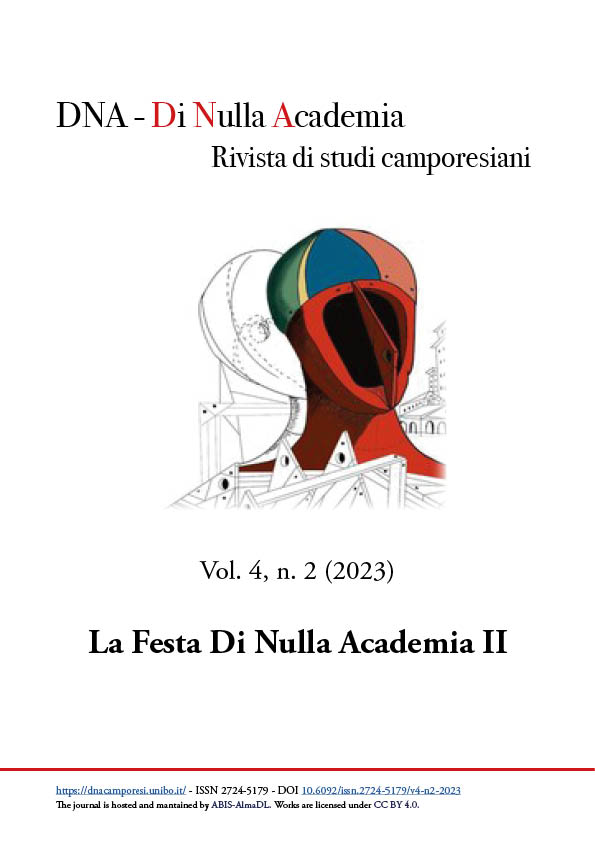Fisicofollia, quisquilie, pinzillacchere e varie diavolerie: il carnevale di Totò, principe-burattino
DOI:
https://doi.org/10.6092/issn.2724-5179/19561Keywords:
humour, theatre, futurism, cinema, language, hungerAbstract
In Totò’s proletarian mask, in his incessant gesticulation, in the linguistic paradoxes that characterise it, the traces of a stratified comic culture are instinctively condensed: from Aristophanes and Plautus to the commedia dell’arte, from medieval jesters to jonglerie. All debts that have been variously indicated and investigated by scholars and that have as their common denominator the technique of improvisation codified in 1699 by the Palermitan jurist Andrea Perrucci, author of the treatise Dell’arte rappresentativa premeditata. Add to this the Marinettian allure that can be discerned in the mechanicalness of the movements and in the disarticulation of the body, which brings to mind the studies of Fortunato Depero who, in the 1910s, was interested precisely in the mechanical aspects of theatrical acting. The «physicofollia», with its examples of fast, irreverent and polyexpressive theatricality that Marinetti posed as a condition for a renewal of the theatre, provided multiple cues for overturning the modes and structures of traditional theatre and for introducing into contemporary dramaturgy those elements of estrangement that we will find in the work of Luigi Pirandello, Bertolt Brecht, Samuel Beckett, Eugène Ionesco and in surrealism.
Downloads
Published
How to Cite
Issue
Section
License
Copyright (c) 2023 Rosario Castelli

This work is licensed under a Creative Commons Attribution 4.0 International License.





